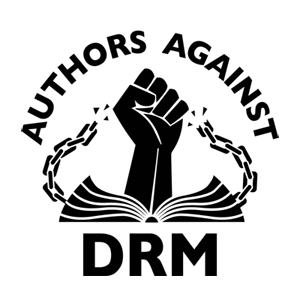Le conte des deux auteurs : pourquoi l’un est traduit et l’autre pas
Le conte des deux auteurs : pourquoi l’un est traduit et l’autre pas
A Tale of Two Authors: Why Translations Happen, or Don’t.
Karl Fogel – 21 février 2011 – QuestionCopyright.org
(Traduction Framalang : Brandelune, Goofy et Penguin: http://www.framablog.org/index.php/post/2011/02/22/traduction-droit-auteur-licence-libre)
Pourquoi certains livres ne sont-ils pas traduits ?
Vous penserez peut-être qu’il est difficile de trouver des traducteurs disposés, ou que les compétences nécessaires sont rares, mais je vous propose deux études qui fournissent une autre explication.
La raison principale d’un texte non traduit vient tout simplement du fait qu’on nous interdit de le traduire. Lorsque les restrictions dues aux droits d’auteur ne les entravent pas, les traductions fleurissent.
Si vous êtes sceptique, lisez plutôt la suite. Voici l’histoire de deux auteurs, l’un dont les livres peuvent être traduits librement par n’importe qui, l’autre qu’on ne peut pas traduire. Nous allons même tricher un peu en disant que celui dont les livres sont ouverts à la traduction est un auteur mineur (un de ceux dont les œuvres, pour être parfaitement honnête, ne vont pas changer la face du monde). Tandis que certains des ouvrages de l’autre sont considérés comme des chefs-d’œuvre dans leur langue d’origine, au point que l’on peut trouver des citations d’éminents universitaires mentionnant l’absence de traduction comme « un des plus grands scandales de notre époque ».
Le premier auteur, c’est moi. J’ai écrit deux livres, tous deux sous licence libre, aucun n’a la moindre importance historique même si j’en suis fier et ai été content de les écrire. Le premier, publié en 1999, était un manuel semi-technique expliquant comment utiliser certains logiciels de collaboration. Bien que son public soit limité et que j’aie mis en ligne une version dans un format un peu lourd, des traductions bénévoles ont très vite été proposées, et l’une d’elles au moins (en allemand) a été achevée. D’autres traductions ont peut-être abouti, je ne sais pas (le livre étant déjà ancien et les traductions m’étant incompréhensibles, je n’ai pas fait l’effort d’en savoir plus).
Remarquez que je ne parle ici que de traductions faites par des bénévoles, celles qu’ils entreprennent juste parce qu’ils en ont envie, sans demander au préalable de permission à quiconque (il y avait aussi une traduction en chinois achevée et dont j’ai une version papier publiée, mais je ne la considère pas dans ma démonstration car elle est passée par les canaux de publication contrôlés par l’éditeur).
Mon livre suivant, publié à l’origine en 2005, ne visait également qu’un lectorat potentiel limité : il traite de la gestion de projets collaboratifs open source — il n’était pas exactement destiné à devenir un best-seller. Mais avec le soutien de mon aimable éditeur, O’Reilly Media, je l’ai mis en ligne sous une licence libre, cette fois sous un format plus agréable, et des projets de traductions bénévoles sont aussitôt apparus. Plusieurs ont maintenant porté fruit : le titre existe en japonais, en galicien, en allemand, en néerlandais et en français. La traduction espagnole est presque terminée, et d’autres encore sont en cours dont je vous épargne la liste.
(Ah oui, au fait, plusieurs de ces traductions sont disponibles en format papier de qualité commerciale, j’en ai chez moi des exemplaires. L’activité lucrative est parfaitement compatible avec les modèles de distribution non restrictifs, comme nous l’avons déjà souligné à plusieurs reprises)
Alors… tout ça pour un livre traitant de collaboration au sein des projets open source ? Vraiment ? Que peut-on en déduire ?
Eh bien, voyons un contre-exemple.
Hans Günther Adler (« HG Adler » de son nom de plume) est un auteur mort en 1988 dont l’œuvre est désormais largement reconnu comme majeure dans la littérature allemande sur l’Holocauste. Très peu de ses œuvres ont été traduites en anglais, sauf tout récemment le roman Panorama, publié en Angleterre et dont la critique a longuement parlé.
Deux de ces critiques nous permettent de bien comprendre pourquoi ici, sur QuestionCopyright.org, nous considérons que notre mission essentielle est de recadrer le débat public sur le droit d’auteur. Les deux critiques littéraires — manifestement intelligents, manifestement d’accord sur l’importance d’Adler, et écrivant tous deux pour les plus influentes revues littéraires de langue anglaise — commentent l’absence scandaleuse de traductions d’Adler en anglais tout en se recroquevillant dans une attitude passive quand il s’agit d’expliciter les raisons de cette absence.
D’abord, Judith Shulevitz dans le New York Times :
De temps en temps, un livre vous fait prendre brutalement conscience de la somme d’efforts et de chance qui ont été nécessaires pour le faire arriver entre vos mains. « Panorama » est le premier roman écrit par H. G. Adler, un intellectuel juif et germanophone vivant à Prague qui a survécu à un camp de travail en Bohème, Theresienstadt, Auschwitz, ainsi qu’à un autre camp de travail forcé particulièrement horrible car souterrain, appelé Langenstein près de Buchenwald. Adler écrit la première ébauche en moins de deux semaines, en 1948 il arrive enfin en Angleterre mais ne trouve personne pour publier son livre avant 1968. 20 ans et deux manuscrits plus tard le livre est enfin publié en anglais aujourd’hui, pour la première fois.
Il est difficile de concevoir la raison pour laquelle nous avons dû attendre si longtemps. Il en résulte que Adler est un presque parfait inconnu dans le monde anglophone. Seuls trois de ses livres ont été traduits : un travail historique intitulé « Jews in Germany », un roman appelé « The Journey » et, maintenant, « Panorama ». Le fait que les lecteurs anglais et américains aient eu un accès aussi limité à l’œuvre et à la pensée d’Adler pendant si longtemps est, comme l’écrit ce spécialiste éminent de la litérature allemande moderne qu’est Peter Demetz, « l’un des grands scandales de notre époque ».
Ensuite, voici ce qu’écrit Ruth Franklin dans le New Yorker :
Hermann Broch a écrit que le livre Theresienstadt 1941–1945 deviendrait un classique sur la question, et que la méthode d’Adler « clinique et précise, non seulement saisit les détails essentiels mais parvient à montrer en plus l’étendue de l’horreur des camps d’une manière particulièrement pénétrante ». (Le livre a été publié en Allemagne en 1955 et il est devenu très vite un ouvrage de référence pour les études allemandes sur l’Holocauste mais n’a jamais été traduit en anglais.)
Soit, Shulevitz et Franklin écrivaient des critiques du travail même d’Adler, pas des analyses sur les raisons pour lesquelles ces ouvrages avaient été si peu traduits en anglais. Il est pourtant frappant qu’ils aient choisi tous deux de commenter le manque de traduction, plus ou moins longuement, et pourtant ils n’offrent aucune hypothèse sur les raisons de cette absence. Ils décrivent simplement la situation et expriment leurs regrets, comme s’ils parlaient simplement du mauvais temps ; il n’y aucune indignation ni frustration sur le fait que l’absence de traduction est tout simplement due au fait qu’elles ont été interdites avant même qu’on puisse les commencer.
Je ne vais même pas utiliser « probablement » ou « sans doute » dans cette déclaration. À ce point, il faut considérer qu’il s’agit de faits établis. Si mes livres – mes petits ouvrages qui ne visent qu’une population limitée dans le monde du développement logiciel – sont traduits depuis l’anglais dans d’autres langues au lectorat plus faible, il est tout simplement impossible que les livres bien plus importants de H.G. Adler, sur des sujets beaucoup plus importants, n’aient pas été traduits de l’allemand vers l’anglais, si même une seule personne (ou, plus important encore, un seul groupe) qui aurait eu l’ambition de les traduire avait été libre de le faire.
Il existe un grand nombre de personnes qui parlent couramment à la fois l’anglais et l’allemand ; les études sur l’Holocauste intéressent de très nombreux locuteurs de ces deux langues et il existe des sources de financement, tant gouvernementales que provenant d’organismes à but non lucratif, qui auraient volontiers soutenu ce travail (certaines traductions de mon deuxième livre ont reçu ce genre de financement, il serait incompréhensible que ces financements puissent exister pour cela et pas pour les traductions du travail de Adler).
Le fait que l’absence de traductions d’Adler, ou d’autres œuvres importants, ne soit pas directement compris comme étant dû aux restrictions issues du droit d’auteur souligne la dramatique faiblesse du débat public autour du droit d’auteur. A l’heure actuelle, les traducteurs ne peuvent pas traduire s’ils ne sont pas assurés en premier lieu d’en avoir le droit, et puisque la position par défaut du droit d’auteur est que vous n’avez pas le droit de traduire à moins que quelqu’un ne vous en donne explicitement le droit, la plupart des traducteurs potentiels abandonnent sans avoir même essayé. Ou, plus probablement, ils ne pensent même pas à essayer, car ils ont été habitués à cette culture basée sur la permission. La simple recherche de la personne à qui demander la permission est un processus suffisamment décourageant, sans même compter le temps passé dans les incertaines négociations qui s’ensuivent lorsque vous avez trouvé la bonne personne.
Il n’est pas étonnant que de nombreux ouvrages de valeur restent sans traduction, étant donné les obstacles. Mais il est étonnant que nous continuions à nous voiler la face sur les raisons de cette situation, alors même lorsqu’elles nous crèvent les yeux.



 Dear Authors,
Dear Authors,
